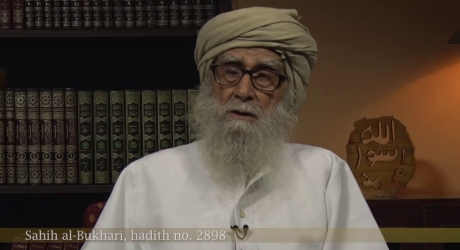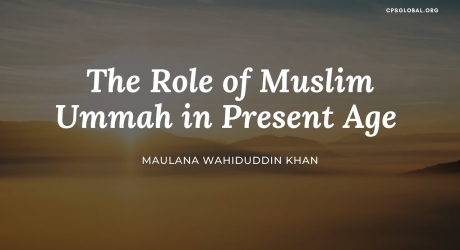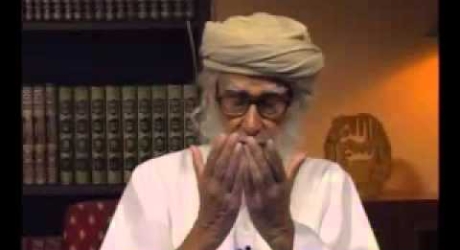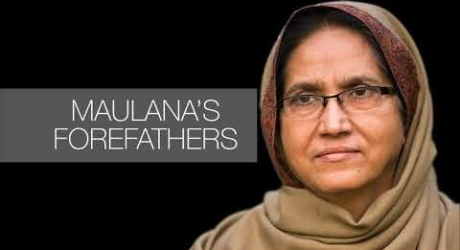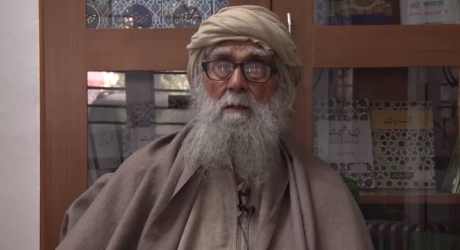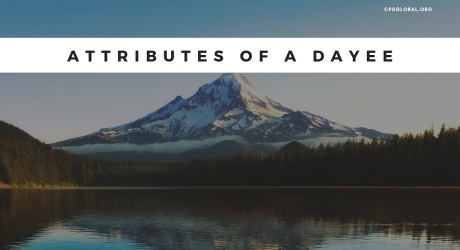In the previous ages, we could do the work of dawah or convey God’s message on a minimal scale at a local level. However, today, dawah can be performed globally due to print and electronic communications developments. Similarly, while travelling, one was hindered in one’s journey due to unavoidable obstacles, such as mountains, jungles, and oceans. However, in today’s age, aeroplanes have the potential to rise above all obstacles and have made travel swift and convenient. Violence is not an option for Muslims, nor should struggle to achieve political gain be their goal. Muslims have only one choice: to engage in peaceful dawah work. ‘God will surely help him who helps His cause—God is indeed powerful and mighty.’ (22:40) God is waiting to extend His help to those who devote themselves to the right task, peaceful dawah work.
Cyprus is known as Qubrus; it is an island of the European continent and is located near Turkey. An international conference was organised here by the Community of St. Edigio and I was invited to attend it. As per the invite, the exact venue for the conference was a place named Larnaca.
I, by my very nature find helplessness interwoven in me and since I was totally unaware about Larnaca’s exact location, I felt extremely reluctant to participate in the conference. However, at the eleventh hour, it so happened that I had to confirm my visit to Cyprus along with two more people: Maulana Zakwan Nadvi and Mr. Rajat Malhotra.
That which prepared me to go to Cyprus, was a Hadith. It is narrated that once the Prophet dreamt that a group of people were to travel to an island undertaking a royal journey like Kings on thrones. A Sahabiya asked him to pray that she also is a part of that group. Then the Prophet said that yes she is. Then again the Prophet dreamt that a group of people were travelling to an island like Kings on thrones. Again the Sahabiya asked him to pray that she is a part of that group. Then Prophet replied: “you are a part of the first group and not of the second group.”
The journey to Cyprus indeed became a very royal journey for us; leaving with me some unique lessons and experiences.
The first lesson that I learnt was that lack of confidence is baseless thing. Helplessness is interwoven in my nature and therefore, I feels that I will not be able to do anything. Here I am reminded of an incident of Jesus Christ. A man listened to Jesus and was influenced by his teachings. He said to Jesus that he yearned to help him, but because he was a resource less man could not think of anything that he could do. Jesus then said to him,
“Man cannot do but God can”.
This saying of Jesus is the formula for confidence as man sees himself and realises that he does not have anything. However, when he sees God, he discovers that God has everything. Hence the belief in God is the greatest source of conviction. Whenever I feel that I am lacking confidence, I recall this formula of Christ. This conviction helped me to travel to Cyprus. [In this journey to Cyprus, the people who were not there but had the same intention, i.e. they were praying for the success of the journey were also with those who travelled]. According to a Hadith:
Those who believe in God; to him God sends help in a manner, which he would never have thought of before.
The same happened with us during the journey. We received help at every step. I thought that when we will get off the plane, we’ll find nobody but there were two people to receive us on behalf of the organisers and they took care of everything.
Those doing dawah work should always bear in mind that they are fulfilling their duty and the rest will be taken care of by God.
Before reaching Cyprus, I thought that I would not see any Asians, particularly Indian and Pakistani nationals there. But to my surprise, I came to know that there were over one lakh Pakistanis in Cyprus - these were Muslims in diaspora.
The most meaningful diaspora was that of the companions of the Prophet. The Companions were asked by the Prophet to scatter in the world to do dawah work. Consequently, a Sahabiya went to Cyprus for Islamic dawah. She was born in Arabia and travelled up to Larnaca in Cyprus. At that time when she travelled, the means of travelling were not as advanced as today. This shows the enthusiasm and dedication for dawah as they travelled to places far and wide despite the difficulties involved in travelling at that time. For example, earlier when I used to travel, the concept of “hold-all” was prevalent. But today everything is available and we don’t need to travel with our bed, quilts etc. During the time of the Sahabas, no such facility was available and they travelled with great difficulties to do dawah. Now, Muslims travel abroad and there are 20 million Muslims in diaspora, out of which seven million are in America alone. The travel of these Muslims today is meant only for earning money. The companions of the Prophet went for dawah work to different countries; hence they were the giver group while Muslims today are a taker group.
The phenomenon of globalisation has been taken negatively by people; thinking that it is a new form of colonialism. But this thinking is absurd. Modern communication has connected the entire world. One can stay in Delhi and still do business with the entire world. Those who take this phenomenon in the negative sense make a big mistake as they think that the developed world has conspired against and forcefully relegated the developing and the under developed nations to one corner in order to fulfil their own vested interests.
What they fail to understand is that the people of Asian and African countries always believed that ‘political freedom’ and saving themselves form Western influence was considered to be the highest attainable goal. Therefore, in India soon after independence, the policy of protectionism was followed, that is, to develop or progress without opening to the world. But this approach failed and now multinational companies are ubiquitously spreading their span in India. Pakistan’s formation was also based on a similar thinking. Pakistan was conceived to develop as a lone Muslim pocket, away from the non-Muslim countries. This idea failed miserably. The Zionist movement of the Israelites is another example of the same thinking. Today Israel is developing only because of help from American that of Jews based outside Israel. It would not be wrong to say that if Israel had to live on its own, it won’t be able to. All these instances are examples of intellectual backwardness.
My companions took dawah literature to Cyprus to distribute it to people and they got an enthusiastic response from everywhere. During this process, I also discovered that history had led to the distortion of all other religions of the world except Islam. It was the only religion left in the preserved form. The ideology of religion in its pure form can be found only in the Quran. The Quran itself alludes to the ideological monopoly of Islam, which Muslims have misinterpreted as political monopoly.
The people of every other religion speak about social work rather than their ideology. This is because at ideological level they think they are untenable and therefore they speak of social work. In today’s age of reason only Islamic ideology can stand. Because other religions have not been preserved, their ideology of religion cannot stand this age of rationality. Even the Muslims today are unaware of the scientific and historical credibility which the ideology of Islam is based on and hence they also run after social work. Other religions do not have this scientific basis nor do they stand the test of historical credibility. The reason because of which people of other religion speak of social work became clear to me only after this journey.
The conference organised in Larnaca was an international one wherein people from all over the world, representing different religions were present. My companions distributed literature extensively; one Christian priest was delighted to receive the English translation of the Quran and asked for more copies for his friends. Another person read the translation of the Quran and said that its language was very clear and easy to understand.
As per a post-hijrat tradition, when the Prophet was in Medina, he went to the house of Hazarat Rumaiysa, who was the sister of Halima Sadia, the milk-mother of the Prophet. After some time in her house, the Prophet fell asleep. When he got up, he was smiling. Upon being asked the reason for the smile by Hazarat Rumaiysa, the Prophet told her that he had just then had a dream in which he saw a group of people who were travelling in Paradise like kings on thrones. Then, Hazarat Rumaiysa asked the Prophet to pray such that she would also become a part of that group. The Prophet replied: “you are among them.” Then according to tradition, the Prophet fell asleep once again and this time again when he got up, he had a smile on his face. When asked, he said that he again saw a group of people travelling in Paradise like kings on thrones. Hazarat Rumaiysa asked the Prophet to pray that she is a part of that group as well. The Prophet replied: “you are a part of the first group but not that of the second group.”
This was my golden dream that God, by his grace may make us a part of that second group.
While still in the plane, we were able to spot the Tomb of ‘Hala Sultan Tikke’ [which is translated in Arabic as Khala of the Sultan-e-Ambiya]. We wanted to visit it just as we were to land, but due to the itinerary of the event, it was decided that while on our way back to the airport from the conference, we would go and visit that Tomb.
I had expected that the Tomb and the surroundings would be in a dilapidated state with just an old grave and no inhabitation around. However, I found that the architecture of the Tomb was equivalent to that of a second Taj Mahal. According to a tradition, the Sahabiya was returning from Cyprus on a mule. During the journey, she fell from it and sustained injuries in head or neck and died. She was then buried there in Cyprus. In the beginning, the grave merely had some stones or bricks on it. Then Sheikh Hasan built a proper grave around it. At the time of the Turks, a mosque was built near it. Recently, USAID, an international organisation has got a whole complex constructed there. As I prayed there in the mosque, I asked God to accept the whole of CPS team and include it in the second group [that Prophet Muhammad dreamt about].
I met people of different nationalities and from across the world in Cyprus. As much as I had read about Cyprus till then, it was said to be a place where severe religious persecution was practiced; the Christians killed the Jews and the Jews killed the Christians. But today there was absolute religious freedom. We took many dawah books and literature and without any restriction we distributed them and no one stopped us. This is a sign of thankfulness for God has paved the way to spread His message with never-before-like ease.
There I met a Muslim youth who was studying hotel management to get a job and earn a livelihood for himself. Cyprus is divided into two parts: 60% of it is ruled by Christians and the rest 40% by Turks. In the former part there is development but in the latter part there is no development. Muslims there know only about job or money but there is no concept of dawah and the immense opportunities are not availed, especially around the tomb of the Sahabiya where people of different religions are in great numbers. The whole place is well known but no dawah work is being done there. It would be very easy and useful to build a dawah centre there.
After a long historical revolution, God has brought Islam to a point where it is stands in a position of unopposed victory. Today, all the scientific reasons are in the favour of Islam and Muslims can do unhindered dawah there but there is nobody to take the lead. Muslims are running towards different things.
Gandhi, for instance was extremely popular in pre-independence days as he mobilised crowds for Quit India movement and eventually led to the exit of the British. But the constructive work required in post-independence days was one that required a Team, which he had failed to put together. So, where Gandhi’s work ended ours commenced.
Therefore, together as a team it is imperative for us to keep in mind that the world today has changed considerably from what it used to be. We can do dawah work in a much easier way. So we need to avail every opportunity that knocks at us as it will not be before long that we shall stand facing our Lord - giving an account of what we were supposed to and what we actually did.
May God accept our efforts.





